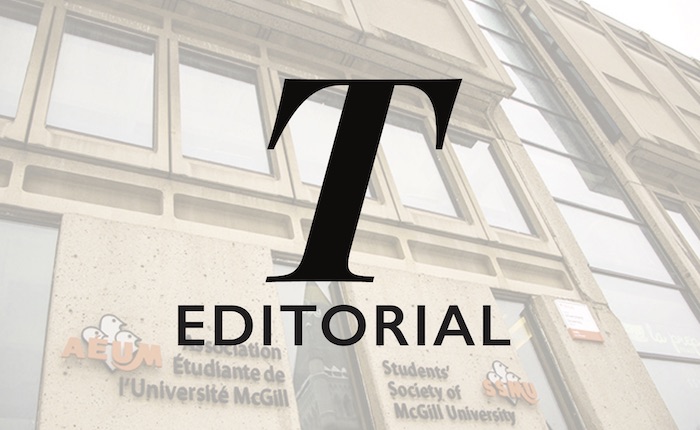2018 has seen politics play out on social media, and the world of student government is no exception. On Oct. 2, the day after the Coalition Avenir Québec (CAQ) won a majority mandate in the provincial election, then vice-president (VP) External of the Student’s Society of McGill University (SSMU) Marina Cupido posted a statement on the SSMU External Affairs Facebook page fiercely criticizing the party, alleging xenophobia and affiliations with white supremacists. Cupido resigned eight days later, citing mental health concerns.
In response to Cupido’s post, SSMU Legislative Councillors Bryan Buraga, Andrew Figueiredo, Brandon Hersh, and Haoyi Qiu submitted a Motion Regarding Responsible Representation. The motion is critical of Cupido’s post, and proposes that SSMU executives only publish statements through official SSMU channels if mandated by the Legislative Council, Executive Committee, a referendum, or a General Assembly motion. While formally requiring executives to consult with their colleagues before taking official stances is necessary, the way the motion sets out to implement such consultation would compromise SSMU’s ability to function.
Although Cupido’s strong language was ill-advised, their sentiment was valid given that the CAQ was elected on a platform that targets immigrants and religious minorities. The amended statement posted to the SSMU External Affairs Facebook page reiterates much of Cupido’s original post. Most severely lacking from Cupido’s post is evidence to substantiate their claims about the CAQ’s policies and affiliations. It is inappropriate for an elected student representative to make such inflammatory claims without proper citation. However, while the post could have relied more rigorously on fact, the VP External’s role is explicitly political and often requires pushing boundaries. For example, in April 2018, then VP External Connor Spencer accused McGill of violating Bill 151, An Act to prevent and fight sexual violence in higher education institutions, in a letter to the Quebec Minister for Higher Education.
The Councillors’ motion is an attempt to ensure responsible representation of the student body’s opinions. This is a laudable goal, but in reality, it is more of a reactive response than a calculated solution. Its retraction of Cupido’s original post undermines the legitimate points Cupido raised and fails to mention the racist backlash the post received. Moreover, the motion only adds to SSMU’s bureaucratic burden. SSMU executives should not ask the Legislative Council to adjudicate their disputes for them: It is the executives’ responsibility to keep their council functioning. Going forward, the most important step for SSMU is consultative communication within the Executive Committee. Continuing existing measures such as regular listserv emails and office hours is important, but student participation is limited. Many students see student governance as remote and inconsequential, and finding ways to engage their membership will allow SSMU to better represent the student body as a whole.
SSMU hasn’t announced whether they will hold a by-election for a new VP External, but it is crucial that they do so and that they begin this process as soon as possible. As SSMU’s link to external organizations like the provincial government, the VP External is an indispensable member of the Executive Committee, and the portfolio’s responsibilities are too vast to be redistributed among its remaining members. The advocacy efforts of past VP Externals have been invaluable to the McGill community: In addition to Connor Spencer’s work, 2011–12 VP External Joël Pedneault directed SSMU’s participation in the Quebec student strike.
With the emergence of racist, anti-immigrant, and discriminatory rhetoric in the Quebec election, McGill students need a focused executive to lobby for student rights and advocate for minorities in a way that is representative and responsible. Electing a new VP External who will commit to open consultation with students and executives is essential to making this goal a reality.









Every executive is elected on their own merit, and each has a mandate, bestowed on them by the voters, that is both entirely legitimate and entirely independent of every other member of council. Only the VP External was elected to do the VP External’s job. If they are performing it outside of the proscribed bounds of what they are elected to do, then -and only then – other SSMU institutions should step in. Anything else is highly undemocratic.